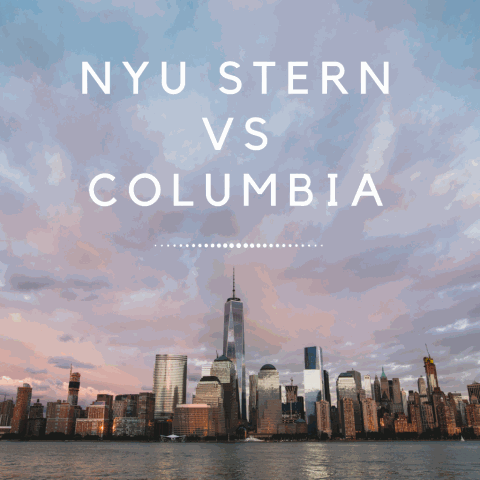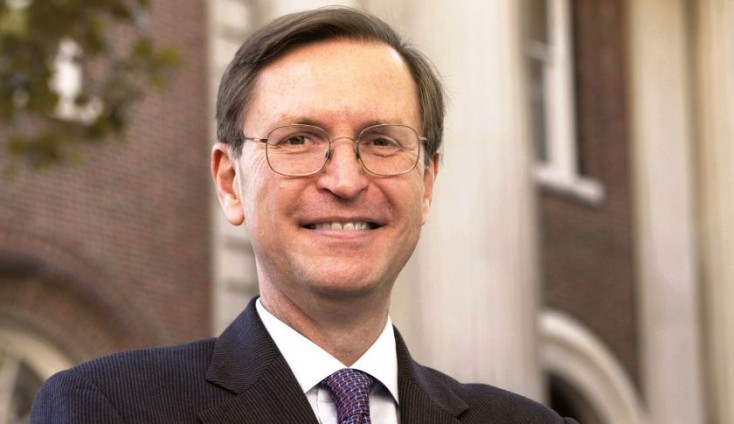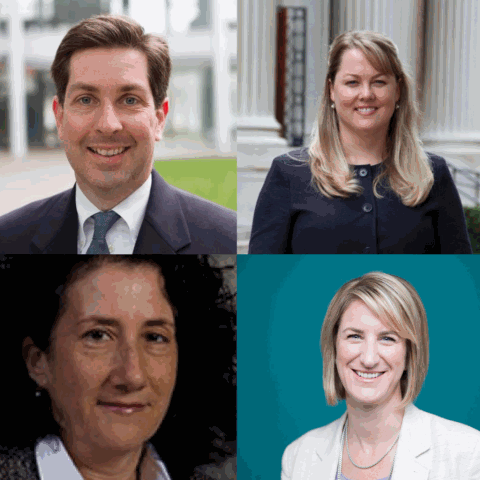
Photo by
Markus Spiske on
UnsplashWhen considering and selecting an MBA program, having clear professional goals is vital. For those considering a career in Finance, especially Private Equity (PE) or Wealth Management, a top MBA program may help you attain a job in the highly competitive sector and enhance your professional profile.
Not all MBA programs are created equal – even among the top 20 - so pay close attention to the opportunities and exposures they provide and select a program that will best help you on your path. To help you on the selection process, we have taken a closer look at five (5) top MBA programs - Wharton, NYU, Booth, Columbia, and UCLA Anderson.
WHARTON -FNCE MBA 
Image Source: Wharton
To many, especially in the industry, Finance and Wharton are synonymous. Although Wharton has diversified its student body,
Finance is among the top three concentrations of the degree program. The extensive list of coursework offered in the concentration is specifically structured to expose students to a wide range of areas within finance. While they provide courses like Investment Management, Corporate Finance, Real Estate Investment, Private Equity, Fixed Income Securities, International Banking, etc., they do not allow specialization within finance as they believe students benefit most from the breadth of material the program offers. This structure will enable students to begin a career in finance, whether that be in the financial sector or the finance department.
Wharton boasts a 98.4% placement three (3) months post-graduation. Of those, about 37% accepted offers in Financial Services with Investment Banking/Brokerage and PE/Buyout being the top sectors. Of the students that received job offers within the United States, New York has been a primary location, and internationally (11% received offers overseas) China is the top country to employ Wharton graduates. Financial service employers that hired Wharton MBA graduates include, Bank of America, BlackRock, Capital Group, Credit Suisse, Deutsche Bank, Evercore, GI Partners, Glenmede Trust, H.I.G. Capital, etc.. The median starting salary is $130,000US.
Wharton’s cluster system allows MBA candidates exposure to a diversity of interests, including opportunities to grow their network within finance. Professional clubs include the Blockchain Club, Investment Management Club, PE and Venture Capital (VC) Club, Wharton FinTech, Wharton Impact Investing Partners, Wharton MBA Finance Club, and Wharton Restructuring and Distressed Investing Club. This community puts together conferences, including Finance Conference, Restructuring and Distressed Investing Conferences, etc. where students have an opportunity to connect with alumni and leaders within the industry.
While the study of the finance concentration is intentionally broad, the variety of outlets allow students the focus and exposure they need to succeed in a finance-driven position, even if their diploma is less specific.
Website: AcademicsApplication: ApplyFinancing your degree: Financial AidNYU- STERN SCHOOL OF MANAGEMENT MBA WITH A FINANCE SPECIALIZATION 
Image Source: NYU Stern
NYU’s two-year, general MBA offers students the opportunity to select up to three (3) specializations from the 20+ options available. For example, you can earn an MBA with a specialization in
Finance to learn how financial markets function,
FinTech to gain a macro-level understanding how AI and machine learning can disrupt the sector, and
Strategy to move the business forward. The plethora of specialization offerings presents the opportunity to be as creative as you foresee the future and the industry will need you to be, which is in line with NYU’s reason d’être.
In addition to the MBA with a specialization in finance, Stern also offers a dual degree,
MS in Mathematics in Finance/MBA. This 72-credit dual degree consists of courses divided between Stern and NYU’s Courant Institute of Mathematical Sciences and takes 2.5 years to complete. The MS in Mathematics in Finance/MBA may be particularly appealing for those interested in quantitative risk and portfolio management, like those interested in working in Exchange Traded Funds (ETFs) or Hedge Funds, for example.
Stern’s MBA class of 2018 boasts a 95.4% student placement within three (3) months of graduation. The strength of their career services office is evidenced by the fact that 82% of offers received were school facilitated – either an offer accepted from internships sourced by Stern or on-campus interviews. About 34% of the class received offers in Financial Services, with significant focus in investment banking. Companies with a significant presence include Credit Suisse, J.P. Morgan Chase, and Citigroup.
NYU’s MBA candidates with finance specialization also have the opportunity to gain first-hand experience in portfolio management and analysis with funds like,
Michael Price Student Investment Fund ($1.8M AUM),
NYU Impact Investment Fund (NIIF), and
Rosenwald Global Value Fund, as well as being part of
MBA Investment Impact Network & Training (MIIT).
In addition to learning first-hand how to manage funds, students have the opportunity to learn from industry veterans with the
Investment Banking Immersion (IBI), which offers students insights from Citibank experts, participate in IPO pitch,
case competitions, or have the opportunity to
advise family offices on investing on social and environment impact causes. NYU’s MBA specialization offers students many opportunities to benefit from the school’s central financial hub and develop a profile that is in line with the student’s creative genius.
Website: AcademicsApplication: ApplyFinancing your degree: Financial AidUNIVERSITY OF CHICAGO – BOOTH SCHOOL OF BUSINESS 
Image Source: Chicago Booth
With
13+ concentrations, the two-year Booth MBA offers students the flexibility and opportunity to focus their area of study. Similar to Stern’s approach, students have the option to select up to three (3) concentrations and gain more in-depth knowledge in their field of interest. Finance concentrations include Accounting, Analytic Finance, Economics, Economics & Statistics, and Finance. The schools
Financial Analytics concentration, for example, boasts about offering the “largest number of advanced finance classes of any business school” and students can gain practical and theoretical knowledge of financial analytics as they pertain to hedge funds, investment banking, risk management, etc. Booth offers a variety of activities exposing MBA students to the world of analytic finance, including Bank Week – where students have the opportunity to network with New York banks, attend information sessions and even sit in at trading desks, for those interested in sales and trading.
Bank Week is organized by the Investment Banking Group – the largest student organization aiming to educate on all matters of a career in Investment Banking. The Hedge Fund Group and Investment Management Group organize speaker events with a focus on their respective concentrations. Additionally, The Financial Analytics concentration offers a one-day hands-on modeling seminar on Leveraged Buy Outs (LBO). The aim is to create an interactive model that represents three (3) constituents – seller, buyer, and lender – to gain in-depth knowledge of the modeling process.
The business school’s Finance concentration covers both corporate finance and investments. Through an empirical lens and a culture of learning through “questioning and debate,“ students explore how “businesses raise the capital they need to start and sustain themselves, decide which projects make financial sense, and manage risks; how people invest in companies; and how financial markets work - how an economy allocates money to where it will have the most value.” The Finance concentrations share some community building and professional development initiatives, but not all. For example, in addition to the extracurricular activities available to the Financial Analytics concentration, the Finance concentration is exposed to the Corporate Finance Group, which serves students interested in finance jobs within an organization on their road to CFO. It is highly advisable to commence the program with a conviction about your area of interest within the financial sector, as it relates to the academic choices you must make early in the program.
Booth also offers MBA labs that lead to hands-on experience. The
Private Equity/Venture Capital Lab requires participants to enroll in a spring term course that is followed by an internship at a PE or VC firm. Students are expected to intern for 10-15 hours per week for at least ten (10) weeks. The Polsky Center has relationships with about 90 PE/VC firms enabling a variety of placements.
Additionally, Booth students have the opportunity to gain global experience via the school’s partnerships with various global universities in 20 countries. Students can spend anywhere from a few weeks to a full term in places like Australia, China, or Spain, learning about how business is taught and conducted there, with the aim to broaden perspectives.
About 35% of
Booth’s 2018 MBA graduating class seeking employment have gone into Finance roles. The majority of the graduating class received offers in positions for investment banking, PE, and company finance. Major financial employers include J.P. Morgan, Goldman Sachs, and Morgan Stanley.
While Booth provides students the flexibility to curate their MBA experiences, the program is focused on qualitative analysis and applies a pedagogical style that mixes theory and case studies to teach business methodologies.
Website: AcademicsApplication: ApplyFinancing your degree: Financial AidCOLUMBIA BUSINESS SCHOOL
Image Source: Columbia University
With its 150 faculty and 100 adjuncts,
Columbia Business Schools’ comprehensive core curriculum and its flexible electives allow MBA students to gain in-depth expertise in a particular business discipline. While concentrations are not noted in transcripts, students can opt to indicate fields of focus in their resumes, and the various divisions, programs, and centers allow them to do just that.
Columbia has four (4) divisions that can help MBA students build expertise in the Finance sphere without earning a dual degree. The divisions offer courses for career functions like corporate finance, financial consulting, PE & Emerging Markets, VC, and Value Investing through
Heilbrunn Center for Graham & Dodd Investing.
Those students interested in Value Investing have an opportunity to apply for one of forty places in the Value Investing program each year. If accepted, students follow a rigorous curriculum and participate in the
5x5x5 Student portfolio, a student-run value investing fund managing real-time positions.
The PE division serves as the primary point of contact, connecting students with the PE industry. They host a variety of events that promote networking — the Deal Camp’s aim, for example, is to prepare students for job interviews in PE. The Alston & Bird Alumni Discussion Series deals with topics that range from capital raising, portfolio investing and exit. The PE/VC Club organizes an annual PE &VC Conference that boasts an attendance of 700 guests, including senior practitioners, faculty, students, and alumni to discuss the emerging trends in the industry. The PE program also offers the opportunity for students to participate in the KKR Diversity, Inclusion, and Innovation Competition where students identify and pitch a company as a Leveraged Buyout candidate.
MBA candidates that want to pursue a career in finance have the opportunity to take part in a variety of programs. The program for Financial Studies boasts vital initiatives that include Climate Change and Finance, Financial Markets Regulation, and Future of Banking and Insurance; the Center for Excellence in Accounting and Security Analysis offers independent solutions to issues related to financial reporting and accounting policy; and, the Advanced Projects and Applied Research in Fintech focuses on impact research affecting the industry and society as a whole. The central theme for the 2017-2018 academic year was insurance and blockchain.
Of Columbia’s
2018 MBA graduates, about 27% secured positions with functions in financial services. The median base salary ranged between $125,000 and $160,000, depending on the sector of finance, excluding other guaranteed forms of compensation like sign-on bonus and non-guaranteed performance related bonus.
Like Stern, Columbia’s central location is ideal for those interested in working in NYC, considered the global financial capital, as it provides a variety of opportunities and exposures for students to gain hand’s on experiences with local organizations.
Website: AcademicsApplication: ApplyFinancing your degree: Financial AidUNIVERSITY OF CALIFORNIA – ANDERSON
Image source: UCLA Anderson
UCLA Anderson’s MBA program structure frontloads the core curriculum classwork allowing students to quickly take charge of their academic experience with specialization by winter of their first year. Anderson offers students the opportunity to choose up to two (2) (out of fifteen (15)) specializations or select electives from multiple specialties to build a tailored elective path. The capstone project allows students to either “research and recommends strategic solutions for some of the top companies in the world,” or, through the Applied Research Management program, launch their own venture.
In 2018, about
23% of Anderson MBA graduates were hired for finance and accounting roles. Those hires crossed a variety of industries including investment banking, investment management, corporate finance, real estate finance, VC, and commercial banking. The median salary for Anderson MBAs is $125,000, and 62% of those students landed a signing bonus averaging $39, 000. Companies that have employed Anderson MBAs include Bank of America, Barclays, Credit Suisse, Citibank, UBS, Morgan Stanley, and Pimco.
Anderson offers three (3) specializations in finance: (i) Corporate Finance, (ii) Kayne Investment Management, and (iii) Accounting. These specializations are organized by
The Laurence & Lori Fink Center for Finance and Investment, where MBA students have the opportunity to partner with alumni and financial institutions to gain hands-on experience and new insights about current issues the facing financial world.
The Fink Center for Finance and Investment organizes three significant events: (i) Fink Investing Conference where investment management leaders have an opportunity to connect and educate a wide range of financial industry participants; (ii) The Fink PE Roundtable where South California’s top PE shops lead “powerful discussions illustrating the path to the future of private equity;” and (iii) Fink Credit Pitch Competition where ten (10) MBA teams from across the country “pitch their best credit investment ideas to a panel of distinguished judges.” Anderson students have the opportunity to compete against students at Columbia Business School, Johnson, LBS, MIT Sloan, Tepper, Tuck, Booth, Darden, and Yale.
UCLA Anderson also is home to the Investment Finance Association (IFA) with more than 300 current members who serve as a bridge to “strengthen educational pursuits, facilitate networking opportunities and enhance recruiting efforts among UCLA Anderson students and financial services organizations.” They mainly focus on helping those pursuing careers in investment banking, investment management, corporate finance, and PE. Events include Investment Banking Career Night, Corporate Finance Career Night, Women in Finance Brunch, Investment Management Roundtable, PE Roundtable, Financial Modeling Excel Workshop, Valuation Modeling Workshop, and Interview Prep Workshop.
Website: AcademicsApplication: ApplyFinancing your degree: Financial AidThese programs all have a significant influence in the financial sector. While each of the schools offers a great deal of opportunity to those considering a career in finance, the flavor of each program differs. Do the legwork early and select the program that best fits your goals in order to leverage your skills and enhance your career. It will allow you to make the most out of your experience and make a profound impact post-graduation.
This article first appeared on
Sia Degree Insights Blog.

















